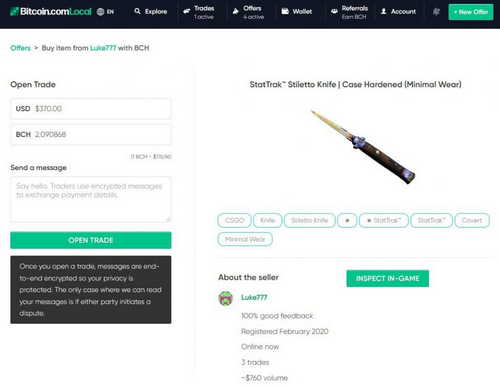The report states that blockchain may be deployed alongside end-to-end encrypted, or E2EE, applications to facilitate voting.
A staff memo has revealed that the U.S. Congress is considering blockchain technology as a means for the Senate to conduct remote voting amid the coronavirus pandemic.
The memo was composed after the Permanent Subcommittee on Investigations’ Roundtable on Continuity of Senate Operations and Remote Voting in Times of Crisis event.
The discussion came as the Senate prepares to reconvene this week.
Senate considers DLT-based voting contingency
The document states that Congress’ two chambers have always “met in-person to conduct business, including committee hearings, floor deliberation, and voting”, emphasizing that “neither chamber has contingency plans to allow those functions to proceed remotely.”
The Senate staff memo asserts that through an encrypted distributed ledger, “blockchain can both transmit a vote securely and also verify the correct vote – noting that said characteristics have been used to argue for the efficacy of blockchain-based voting systems.
“Blockchain can provide a secure and transparent environment for transactions and a tamper-free electronic record of all the votes”, the memo states. “It also reduces the risks of incorrect vote tallies”, the document adds.
Congress also notes that blockchain-like systems are already being deployed in the context of voting – citing Estonia’s 2019 parliamentary elections that saw 44% of votes cast online.

Senate concerned about security vulnerabilities
The report identifies concerns regarding a 51% attack on the blockchain used to host Senate ballots, emphasizing that “any remote blockchain voting system would need to be properly set up to eliminate any threat of 51 percent attack.”
The Senate also expresses anxieties concerning “possible vulnerabilities from cryptographic flaws and software bugs.”
The memo comes amid increasing discussions surrounding the efficacy of blockchain-based solutions to governance challenges resulting from the COVID-19 pandemic, with Treasury Secretary Steve Mnuchin being urged by members of Congress to consider blockchain-based stimulus distributions.
US Congressman Challenges Fed Chair on Threat of China’s Digital Currency
United States Congressman Bill Foster (D-IL) has questioned the Chair of the Federal Reserve Jerome H. Powell on U.S’s central bank digital currency (CBDC) progress at a hearing on monetary policy earlier today.
Foster hopes for a digital dollar
Foster began his questioning by asking Powell:
“Do you think that establishing a digital dollar would help ensure that the U.S. dollar continues to serve as the core of the U.S. and the world’s financial system?”
Powell agreed with the importance of the dollar to the U.S.’s financial system:
«I think having a single government currency at the heart of the financial system is something that has served it well, it’s a basic thing that hasn’t really been in question.»
As to the role of a CBDC in particular, Powell was cautious. “Whether a digital currency moves us along that path is an open question”, he said. «Every current central bank is taking a deep look at that.»
Foster urged the U.S government to address the CBDC issue sooner rather than later
While comparing with some existing CBDC projects, Foster asked Powell’s current plan in responding to China: «How would you characterize our ability to respond to this potentially competitive threat?»
Foster said that China was in a position to scale its digital Yuan by using their established cell phone payment system.
Responding to the questions, Powell pointed out that U.S and China are different when facing central digital currency: «They are a completely different institutional context.»
Foster also worried that if the Federal government doesn’t react and issue a plan for a digital currency quickly, potential competitors like China could roll out CBDCs and gain an upper hand. He specifically cited China’s plan to implement the digital Yuan among countries involved in its Belt and Road initiative, it could jeopardize the dollar’s world reserve currency status.


